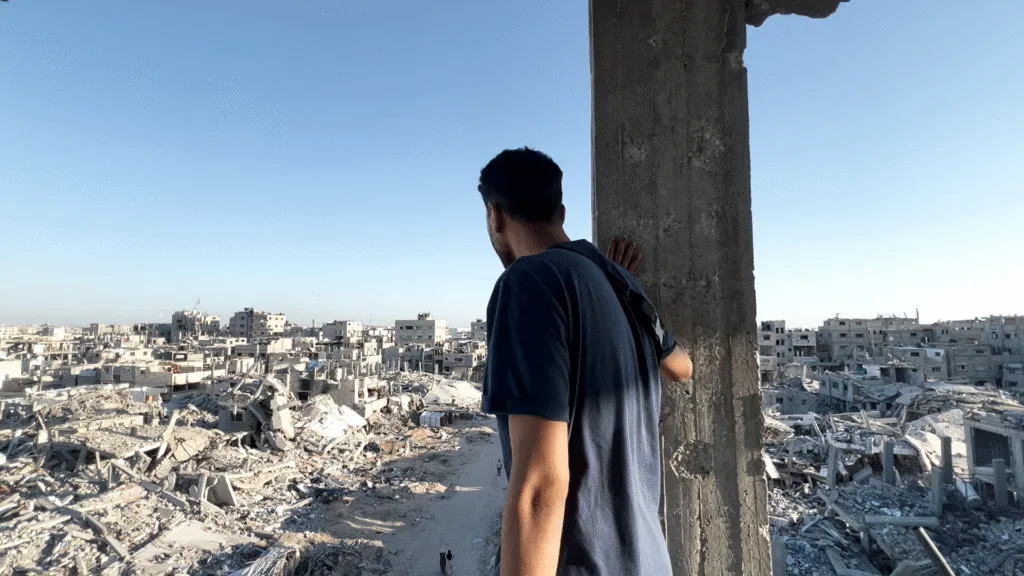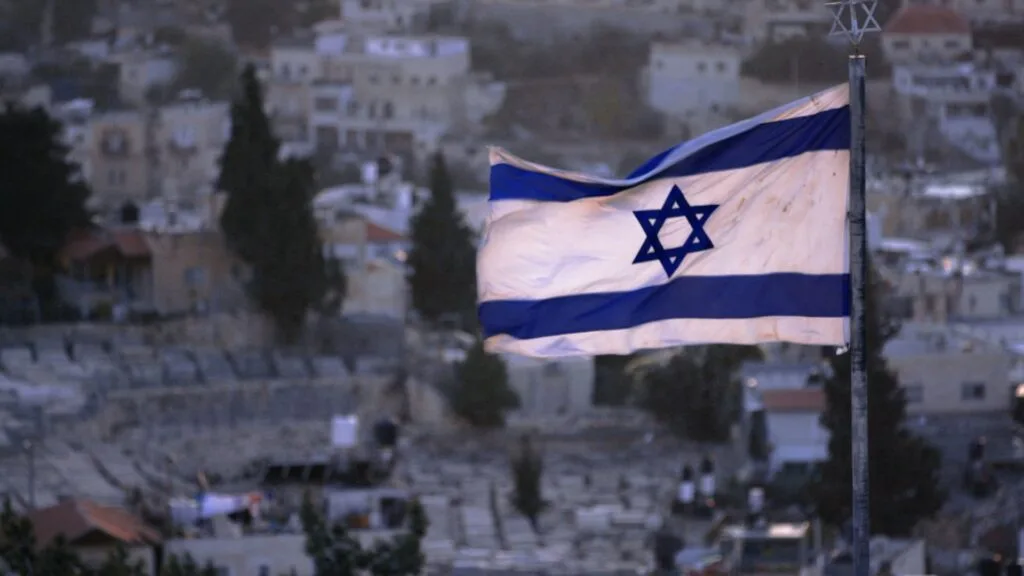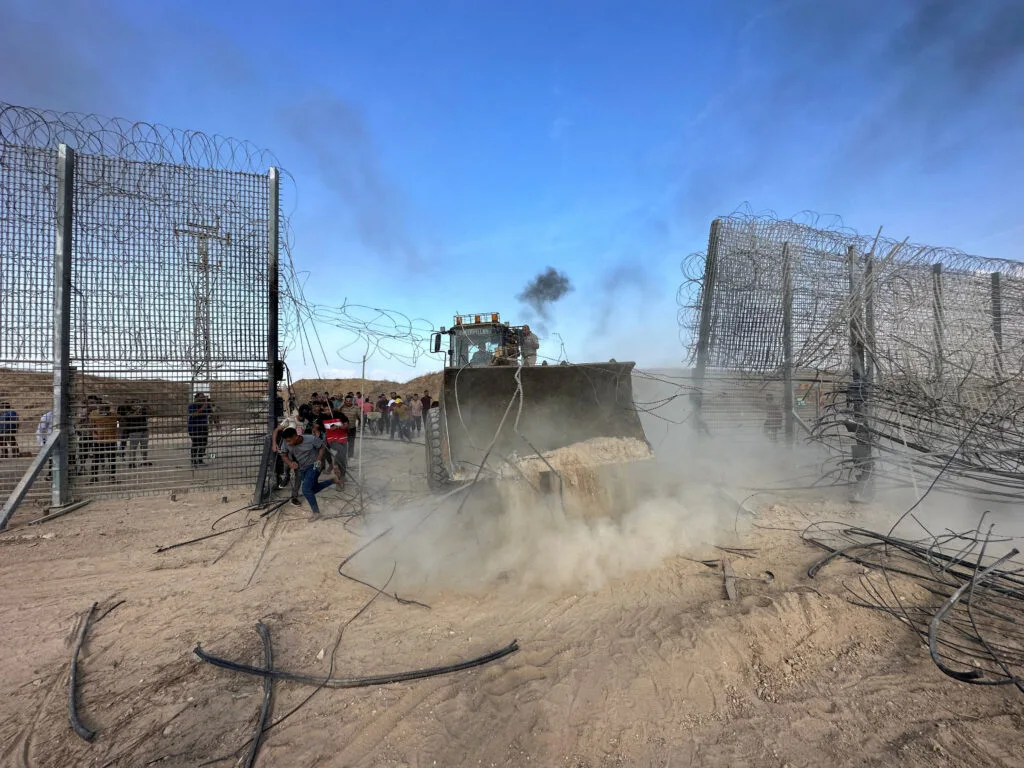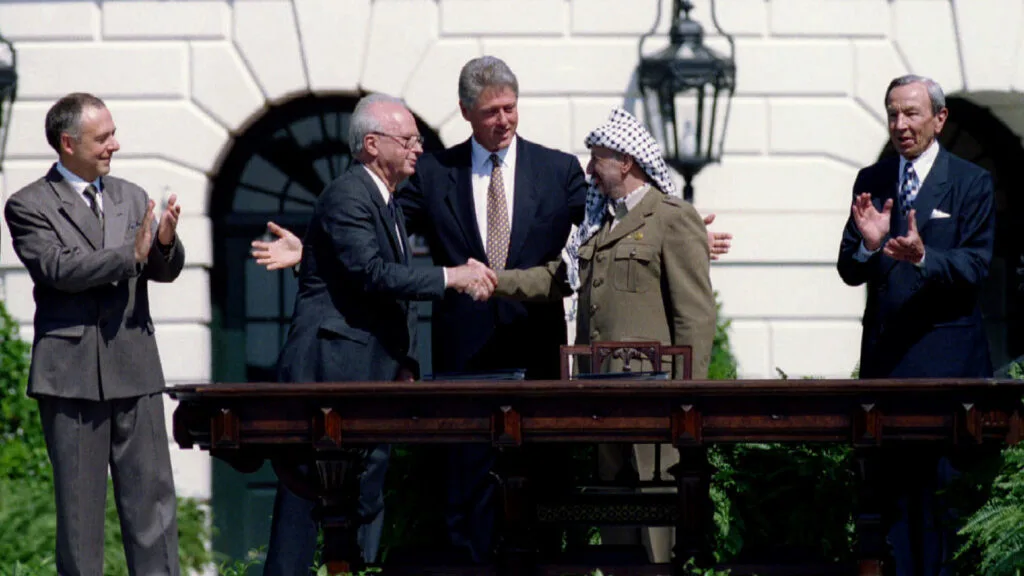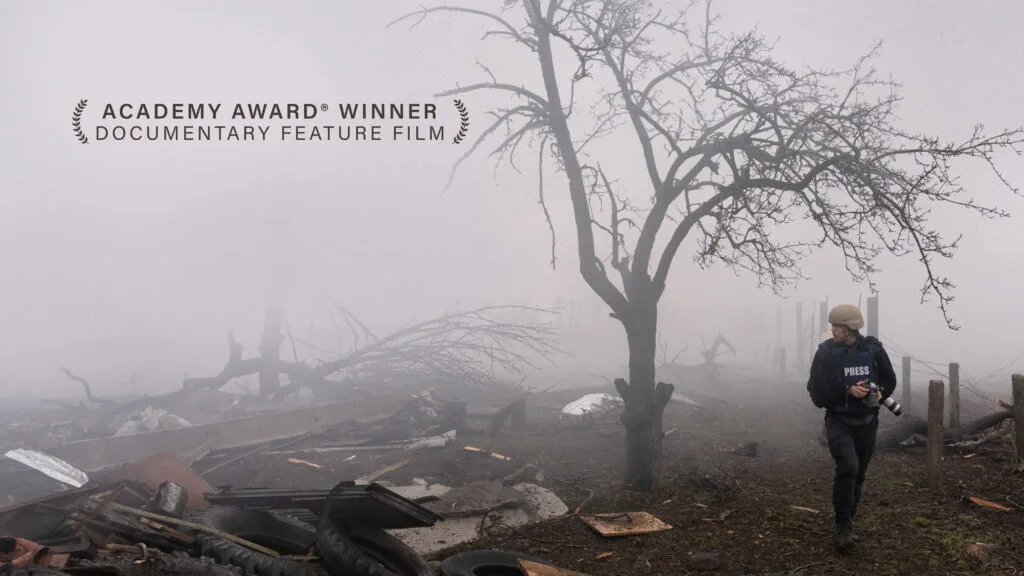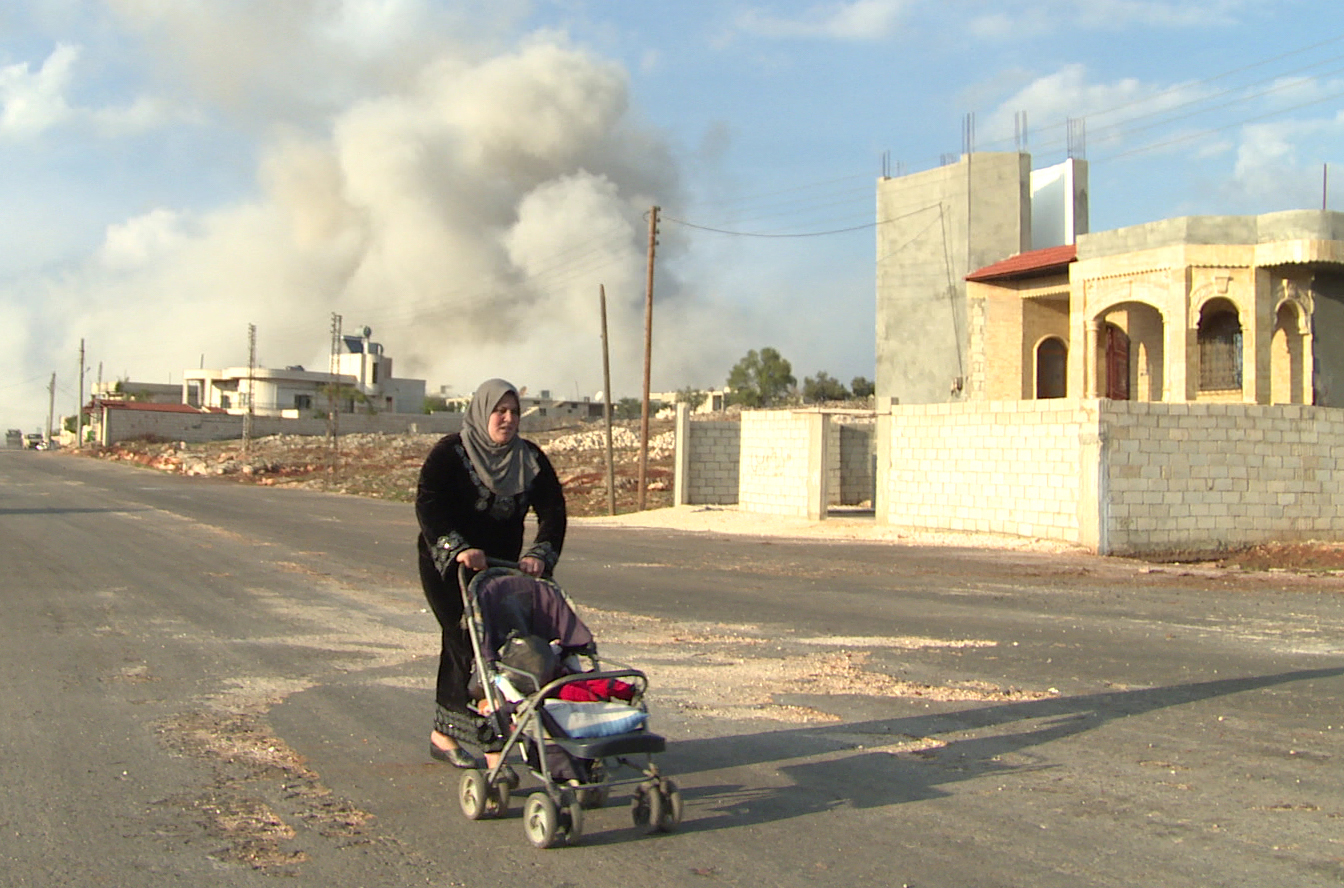Reporter’s Reflections: “I Almost Died in Syria”
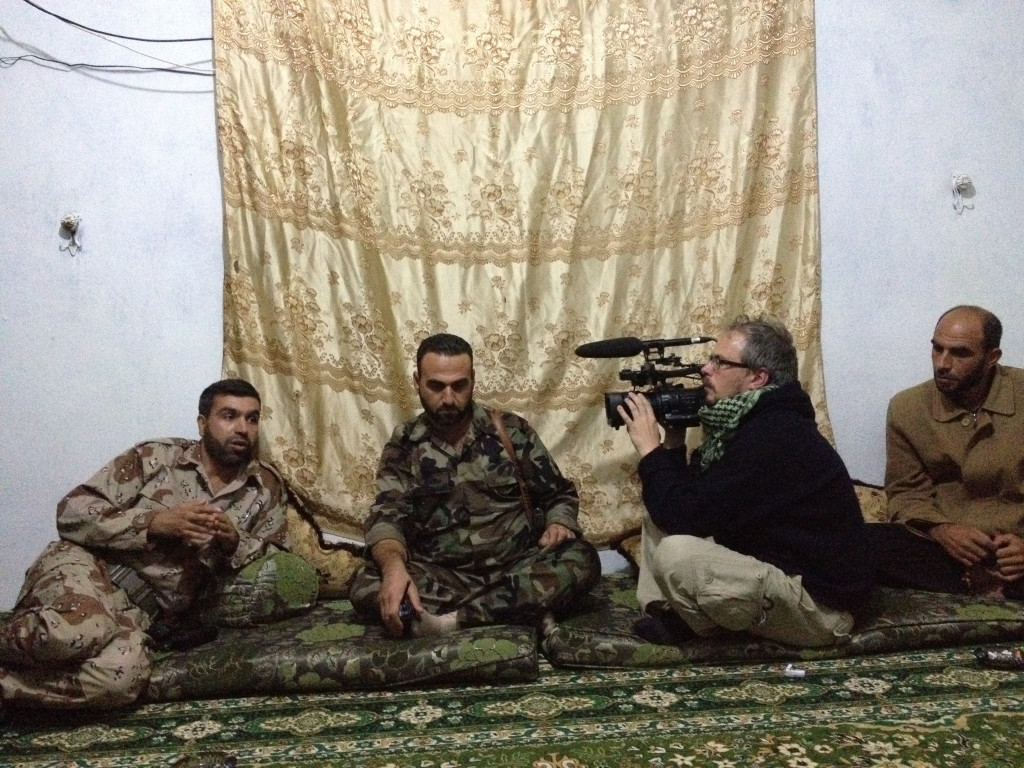
April 9, 2013
Share
FRONTLINE filmmaker Olly Lambert has a decade of experience documenting life in conflict zones. But when he crossed into Syria, he had no idea how close he would come to dying.
In an essay for Salon, he writes powerfully about the five weeks he spent living and filming on both sides of Syria’s war, and his close encounters on the frontlines of the country’s dangerous civil war.
“Nothing could have prepared me for the imperial-scale level of violence that I witnessed there,” writes Lambert. “It was totally unprecedented in my experience. And it’s only now, reading journals and looking back at footage, that some of it is even becoming real.”
When Lambert sat to interview Jamal Maarouf, a Syrian rebel commander, he didn’t anticipate that bombs from government jets would begin to fall just 300 meters away. He describes the scenes he witnessed and his own inner turmoil as he documented the aftermath of the strikes.
Beside the huge crater, an old sheikh urged me to film something on the ground, and then he started wobbling something in front of him, some sort of sack of jelly or meat. And suddenly I realized what I was looking at: the remains of someone who was alive just minutes ago, killed in the most brutal and sudden of ways, lying there debased in the dust. The body was not recognizable as human.
I felt a terrible expression contort my face: I was pulling back my lower jaw and cheeks, my top teeth were bared, and my eyes were wide. I was still filming, but was aware that my face had contorted into a look of horror. The weirdest part was that I was relieved to be horrified, to be human among all this inhumanity, and not just some robot with a video camera.
While I stood there in the rubble, shouts started going up that the jet was returning to bomb a second time. I ever so slightly pissed myself. Where does one stand in a situation like this? Would the jet strike an area it had just hit, to kill rescuers and survivors? Or would it regard that as a “waste” of a bomb, and drop it somewhere else? Was that crater, in fact, the safest place for miles?
I’m sure there’s a training course somewhere that teaches what to do in that situation. Actually, I’ve probably done that course. But right then, all I could do was run for it like everyone else.
You can read his full essay here.
Related Documentaries
Latest Documentaries
Related Stories
Related Stories
Explore
Policies
Teacher Center
Funding for FRONTLINE is provided through the support of PBS viewers and by the Corporation for Public Broadcasting, with major support from Ford Foundation. Additional funding is provided the Abrams Foundation, Park Foundation, John D. and Catherine T. MacArthur Foundation, Heising-Simons Foundation, and the FRONTLINE Trust, with major support from Jon and Jo Ann Hagler on behalf of the Jon L. Hagler Foundation, and additional support from Koo and Patricia Yuen. FRONTLINE is a registered trademark of WGBH Educational Foundation. Web Site Copyright ©1995-2025 WGBH Educational Foundation. PBS is a 501(c)(3) not-for-profit organization.




